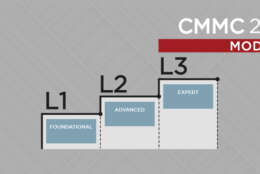SDFM The Business of Defense
-
Federal agencies are embracing concrete steps towards ESG. The government should lead the way for a more sustainable future to be achieved.
June 10, 2022 -
Trust Nothing. Authenticate and Authorize Everything.
June 10, 2022 -
Post pandemic, federal healthcare agencies are investing in a future where telehealth is not a novelty but ubiquitous. Leaders from multiple agencies explain how the government is positioning itself for that transition.
June 10, 2022 -
The COVID-19 pandemic is demonstrating the need for agencies to make the shift from paper to electronic records.
June 09, 2022 -
“Conversations on Health Care” co-hosts Mark Masselli and Margaret Flinter talk with Allen about new efforts to elevate the quality of indoor spaces in an overall health strategy.
June 09, 2022 -
Lack of understanding has been central to the drama surrounding CMMC since its inception. Jacob Horne, chief cybersecurity evangelist at Summit 7, breaks down why it’s taking so long, and what to expect from CMMC 2.0
June 08, 2022 -
Citizens seek out government services during times of transition, when they’re most vulnerable. Human-centered design can help government connect with citizens and streamline processes for better services during these critical moments.
June 08, 2022 -
Developing a hybrid approach doesn’t require radical rearchitecting and redevelopment. What it requires is a zero trust security architecture strategy.
June 07, 2022 -
The Office of Cybersecurity, Energy Security and Emergency Response sees a key opportunity to ensure the future U.S. electric grid is more secure from cyber threats.
June 07, 2022 -
In this ebook, Federal News Network provides a look at the breadth of the challenges as well as offers insights about how federal agencies and organizations are tackling or plan to tackle the great power competition.
June 07, 2022 -
Ann Dunkin, the chief information officer for the Department of Energy, said a new initiative is trying to demonstrate how to scale new ideas more quickly.
June 07, 2022 -
Customer service is top of agencies’ minds right now, with the recent executive order from President Joe Biden focusing on improving experience and equity of public-facing services through modernized programs and technologies that provide a simple, seamless customer experience.
June 07, 2022 -
The internet of things, or IoT, refers to sensors with an extremely wide range of capabilities, network requirements, and power needs.
June 06, 2022 -
This week’s FEDtalk show features attorneys from the law firm of Shaw Bransford & Roth (SBR) to discuss personnel issues and trends emerging from the pandemic era.
June 03, 2022 -
During this exclusive webinar, we will explore some of the challenges that organizations have faced in moving toward zero trust and evolving their identity and access management strategies. Agency leaders will discuss their considerations and recommendations for balancing security with customer service for both their citizens and their employees.
June 03, 2022















